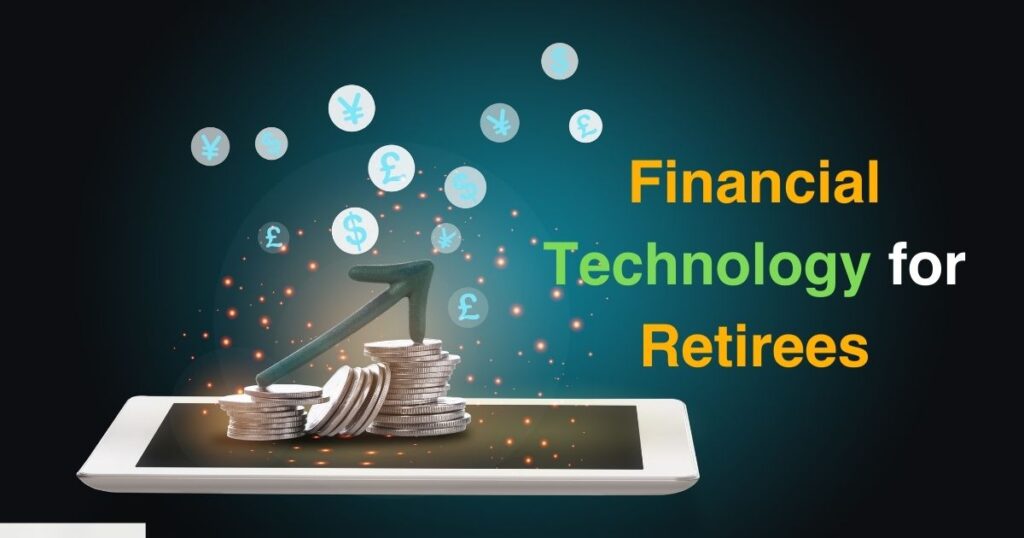While often associated with younger digital natives, financial technology holds tremendous potential for older generations as well. As apps and automation digitize finance, user-friendly fintech tools are emerging to help retirees overcome obstacles, find opportunities, and gain insights from data. Already fintech aids budgeting, payments, and planning, but by 2024 exponential growth will deliver even more supportive innovations. Embracing fintech solutions smartly leverages technology for stability.
Financial technology innovations are transforming money management and financial services. As fintech permeates the mainstream, modern tools now simplify organizing finances, saving, investing, banking, and accessing resources in retirement. This 2024 fintech blog explores practical applications to empower financial security for retirees through tech-enabled solutions.
Banking and Payment Apps

Mobile and digital banking apps now provide convenient access to manage accounts, transfer funds, deposit checks, and handle bill pay securely from home. Useful features include:
- Checking balances and transaction histories
- Transferring money between accounts
- Depositing paper checks via phone cameras
- Paying bills online through bank apps
- Setting up account alerts
- Managing retirement accounts
- Zelle, Venmo, and CashApp for peer payments
- Debit/credit cards for contactless mobile payments
These digital finance apps appeal to tech-savvy boomers who value mobility and simplicity. They reduce reliance on physical bank branches and paper statements. Leading apps like Chase Mobile and Wells Fargo Mobile cater specifically to user-friendly retirement age demographics.
Budgeting and Expense Tracking Apps
Managing cash flows is easier with apps that aggregate financial data and analyze spending patterns. Top examples like Mint, Personal Capital, and You Need a Budget sync accounts, alert on unusual activity, provide customized budgeting and identify savings opportunities. Retirees can track income sources and portfolio draws more diligently to preserve capital. Apps enable optimizing retirement cash flows through data.
Retirement and Investing Apps

Specialized apps now allow DIY investing, trading, and managing retirement accounts conveniently online. Platforms like Fidelity, E*TRADE, and Betterment allow self-directed investment management from a desktop or smartphone. Key features helpful for retirees include:
- Trading stocks, ETFs, and funds commission-free
- Automating retirement account contributions
- Optimizing asset allocation/rebalancing
- Accessing investment research and analysis
- Managing 401(k), IRA, and Roth accounts
- Paperless tax documents and disclosures
- Retirement income calculators
Digitally managing investments reduces fees and gives retirees more control over hard-earned nest eggs.
Financial Planning Apps
New apps also assist with personalized financial planning using intuitive interfaces. Offerings like Albert, Mint Bills, and Walnut guide budgeting, debt reduction, tax optimization, investment balancing, and retirement decisions. Retirees describe goals, input data, and receive actionable recommendations for smarter saving and spending. Automation identifies ways to maximize limited incomes through proactive planning.
Business Accounting Apps
Retirees with small businesses, side gigs, or rental properties benefit from apps aiding with accounting, invoicing, payroll, taxes, and managing expenses. Wave, QuickBooks, Xero, and FreshBooks help entrepreneurs stay financially organized. Features like invoicing, receipt scanning, reporting, and estimating simplify operations. This enables monetizing passions into secondary income streams.
Security and Fraud Protection

Fintech also bolsters security for retirees. Solutions like Apple Pay, debit/credit card controls, multifactor authentication, and biometrics safeguard accounts. Apps feature enhanced user data protections. New blockchain-based systems will increase payment transparency. Personal finance apps encourage monitoring for fraudulent activity. Security gives confidence in managing money digitally.
Conclusion
Financial technology solutions tailored specifically to support retirees’ specialized money management needs in 2024. Though adoption accelerates with younger generations, user-friendly tools now empower retirees to track spending, budget strategically, invest wisely, maximize income streams, and protect assets. As technology permeates finance, harnessing secure fintech designed around retiree priorities will ensure financial stewardship keeps pace with innovation. With enhanced control and insights over finances, tech-savvy retirees will thrive.
FAQs About Financial Technology for Retirees
How can fintech help retirees manage money more easily?
Useful fintech includes digital banking/payments, budgeting/tracking apps, retirement/investing apps, planning apps, accounting apps for side gigs, and improved security like biometrics and two-factor authentication.
What are the key advantages fintech offers retirees?
Benefits include mobility, convenience, automation, tracking spending, budgeting tools, paperless management, reduced fees, greater investing control, risk monitoring, fraud protections, and maximizing limited incomes.
What concerns do some retirees have about adopting fintech?
Common concerns include the perceived complexity of new tools, privacy risks, account security fears, high investment app fees, and a preference for in-person financial management. Patience and training overcome these.
How can retirees evaluate which fintech solutions are right for them?
Consider needs like budgeting or investing features. Vet security protocols. Compare costs. Read reviews and evaluate customer service. Test user-friendly tools tailored for retirees. Move gradually into services.
Will fintech become a standard part of managing retirement finances in the future?
Yes, as younger generations adopt finance technologies, mobile and automated solutions will likely become a mainstream aspect of financial management in retirement decades down the road.



